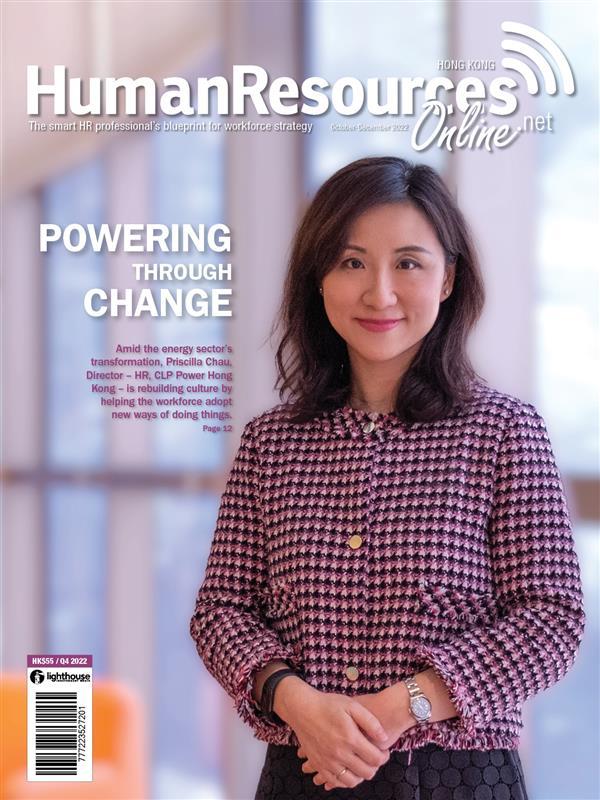Follow us on Telegram and on Instagram @humanresourcesonline for all the latest HR and manpower news from around the region!
share on
Creating an environment in which people can do their best work, while increasing the investment towards mental health, are key trends identified by Peter Hatt, Head, HR, Asia, Standard Chartered Bank (Hong Kong) Limited.
Hello, crystal ball, what will the world look like in the future?
2022 has been a roller-coaster year – the flip-flop epidemic situation, the reopening of borders, the revival of international travel, and the uncertain macroeconomic outlook – all prompting HR professionals to be more forward-thinking, agile, and adaptable to navigate the fast-evolving world of work.
As we enter 2023, what should HR professionals expect and prepare for moving forward? In this series, titled HR in 2023, HRO's Tracy Chan reached out to seven senior HR leaders across industries and regions, to listen to their thoughts on the future of HR in the new year.
In our first episode, Peter Hatt, Head, HR, Asia, Standard Chartered Bank (Hong Kong) Limited, identifies the importance of creating an environment in which people can do their best work, while increasing the investment towards mental health. He believes these are the two key trends HR practitioners should look out for in 2023.
Let's see what he says.
Developing people capabilities
It’s definitely all about skills and how employment is likely to change in the future.
There is much debate around the future of jobs and clearly, we are facing a competition for skills globally and as the local talent pool shrinks from factors such as emigration and an aging population, reskilling and upskilling to enable talent retention and succession planning are at the forefront of employers’ minds.
As a result, HR has a critical role to play over the next 12 to 18 months and HR leaders need to arrive at new, innovative ways to address this challenge. Organisations are starting to determine what skills are in demand for the future, understand key skills required for what roles, and identify skills that are transferable.
We’re seeing more opportunities to upskill (employees are taught additional skills or their existing skills are improved to help them bring more value and expertise to their position), reskill (learning new skills to transition into a completely new role), and even cross-skilling (learning of new skills that can be lent to different areas to improve collaboration and support). This massively helps to retain our talented employees, prepare for organisation’s growth, and also results in positive outcomes for the company.
We need to create an environment in which people can do their best work. That’s why many organisations are seeking to create a frictionless learning experience for them.
However, therein lies our challenge. Organisations need to continue to strive towards the adoption of innovative and employee-centred solutions, so that training is focused on the individual needs of each employee, and that it fits seamlessly with their work schedules.
We also need to transform the learning experience from traditional classroom settings to a digital experience with a human touch. We need to continue to engage learners through immersive experiences in this hybrid working environment.
And this is far from simple. A key question that organisations will continue to ask - How can learning programmes be developed to hold the learner’s attention?
Accessing training remotely may be convenient, however these experiences are in direct competition for the learner’s attention from constant distractions. We need to continue to spark curiosity and play to a learner’s motivation for learning.
This can be driven in several ways. Short, bite-sized modules, interactivity, and the gamification of learning can all contribute to successful learning outcomes. We will see a lot more focus on offering brief, focused lessons that center on one learning outcome that can prove to be beneficial to a learner, eliminating wandering attention and irrelevant material. Minimising the length and complexity of individual training sessions can also help learners retain information more effectively.
Wellbeing
A key trend that we will continue to see flourish and evolve is the investment towards mental health.
Mindfulness, a meditative practice, is gaining immense momentum as a key trend that will evolve this year, and personally one I’m very excited about. In a nutshell, mindfulness is about being mindful about our decisions for our wellness and every living moment, such as the choice of diet and its effect on our planet. Employees are reinterpreting all their decisions and behaviours based on mindful awareness.
Mindfulness can help individuals develop greater awareness of organisational needs and challenges. It can also help people to develop leadership skills and feel less reactive in the face of change. I truly believe that it will foster workplace wellness by helping increase flexibility, improving empathy, and improving resilience in the longer term.
Workplace stress has exacerbated over the years during the pandemic and now with new hybrid working environments, we’re witnessing employees unable to draw clear boundaries between their work and personal lives. Many employees are unable to dedicate time to their mental and overall wellbeing due to inflexible work hours, high workload, job insecurity and inability to share concerns openly.
It has become extremely critical for leaders to spot the signs of stressed-out employees such as incomplete work, decreased productivity, lower quality of work, and mistakes. We also need to individually as leaders and collectively as an organisation, identify potential stressors in the workplace and take active steps in reducing them.
I personally try to role model behaviours that I would want to see in my team as it’s important that I can demonstrate and provide a stress-free environment for my colleagues to work in, and still be productive.
This article first appeared in the Q4 edition of Human Resources Online's Hong Kong e-magazine. View the e-magazine here, where you'll find power-packed features and interviews with leaders from Hong Kong, Singapore, Australia, the UK, India, and more!
Image / Shutterstock
share on



